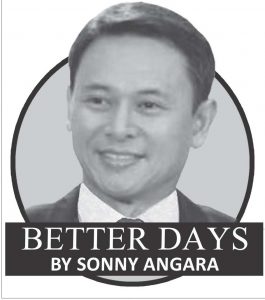Last March, President Duterte enacted into law Republic Act 11534, more widely known as the Corporate Recovery and Tax Incentives for Enterprises or CREATE Act. Certified at the time as urgent by Malacañang, the law was touted as one of the government’s critical interventions to keep the country’s economy afloat amid the pandemic. 
The thinking was that by lowering corporate income taxes across the board, the measure would help free up the financial resources of enterprises to thereby enable them to continue operations and keep their people employed. Such a move also puts our taxation system closer to our ASEAN neighbors, improving by some measure our global competitiveness and hence our attractiveness to investment—both foreign and domestic.
Overall, the enactment of the CREATE Law bodes well for the prospects of many economic sectors. But due to a possible misinterpretation of the law’s provisions, some of the hardest hit throughout this pandemic stand to be dealt another blow—namely, private schools.
Recently, the Bureau of Internal Revenue (BIR) issued the implementing guidelines of CREATE (by way of a revenue regulation), where private schools will be imposed the regular tax rate of 25 percent instead of the preferential rate of 1 percent (between July 1, 2020 to June 30, 2023) and 10 percent henceforth (the rate which has been imposed on private schools since 1968) as prescribed by the newly enacted law.
Due to some ambiguity in the actual wording of CREATE, the BIR ruled that a school has to both be “proprietary” and “non-profit” in order to qualify for the preferential rate. In our view, it is difficult for a school to both be proprietary and non-profit, given that the very nature of any privately-owned enterprise is generally to be managed and run as a profit-making organization.
In response to pleas for the tax hike to be rescinded, the BIR stood firm, citing some recent Supreme Court cases that bolstered their interpretation. Be that as it may, no less than our Constitution states that proprietary educational institutions, including those cooperatively owned, may be entitled to exemptions from taxes and duties, subject to limits provided by law.
These legal details notwithstanding, the most important consideration here is the fact that since face-to-face classes were prohibited due to the pandemic, many private schools have suffered an unprecedented setback and find themselves on the brink.
In fact, according to the Coordinating Council of Private Educational Associations (COCOPEA), several private basic education schools have suspended their operations while up to 900 have closed altogether since the start of the pandemic. As of March this year, the Department of Education reported that enrollment in private K-12 schools dropped by nearly a million compared to the prior school year. This echoes the results of an April 2021 survey conducted by the Philippine Association of Colleges and Universities (PACU)—an association of private higher education institutions—where over 50 percent of respondent-schools said they experienced a drop in enrollment of 10 to 50 percent during school year 2020-2021 as compared to the year before.
Saddling these already besieged schools with a tax burden that is 150-percent larger than what has been levied on them for over five decades would be like kicking someone while they were down on the ground. Even more teachers and school personnel could lose their jobs, not to mention the loss of income for the extensive network of linked micro, small, and medium enterprises. Not only does the tax hike run counter to the clear objectives that Congress had with CREATE, it also jeopardizes a significant component of our recovery effort—a return to normalcy in our education system.
In response, we filed SBN 2272, amending the National Internal Revenue Code to clearly indicate that the preferential tax rate granted under CREATE shall apply to all proprietary educational institutions. We are optimistic that this measure will pass muster, considering that no less than Senate President Pro Tempore Ralph Recto, Majority Floor Leader Migz Zubiri, and Senators Villanueva, Binay, Gatchalian, Poe, and Gordon have all signed to be co-authors. Our hopes are further bolstered as similar bills have already been filed by Deputy Speaker Rufus Rodriguez and Rep. Jose Francisco “Kiko” Benitez.
But even without the passage of this measure, the BIR could very well reconsider and amend the revenue regulation that it issued and provide some much-needed relief to our private schools. To be more sensitive to the needs of our countrymen amid the pandemic, it could correct its interpretation of Congress’ legislative intent with CREATE.
***
Sen. Sonny Angara has been in public service for more than 16 years. He has authored and sponsored more than 200 laws. He is currently serving his second term in the Senate. (E-mail: sensonnyangara@yahoo.com| Facebook, Twitter & Instagram: @sonnyangara)/WDJ

